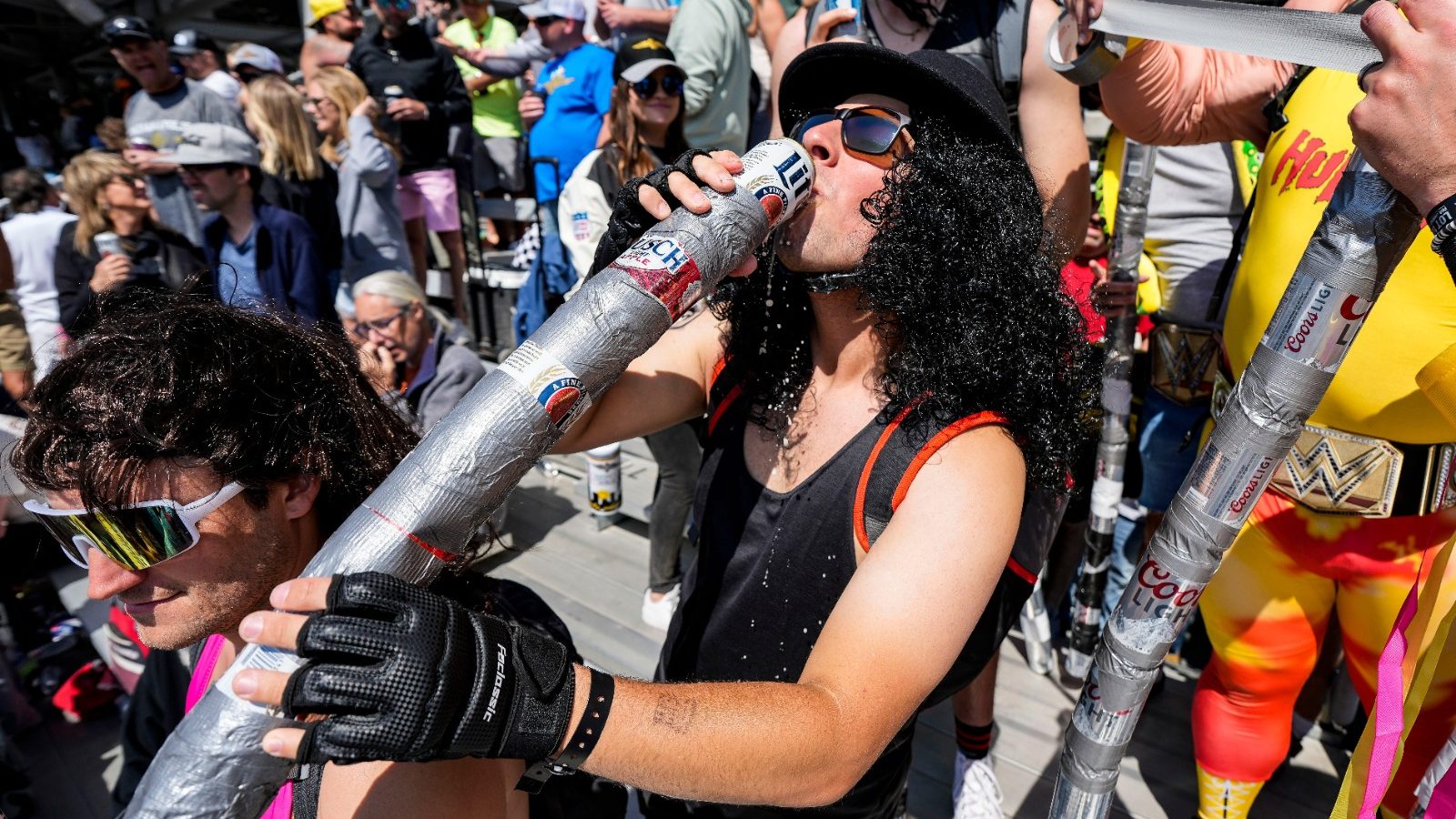A study of sports betting legalization across U.S. states reveals a bit of a troubling connection: Online sports betting is driving an increase in binge drinking among young men.
The research, conducted by Kabir Dasgupta from the Federal Reserve Board and Keshar Ghimire from the University of Cincinnati, found that “the legalization of online sports betting has increased binge drinking among young men by approximately 10%.” The effect was limited to alcohol — the study found “no discernible impact on smoking and marijuana use.”
This represents some of the first causal evidence linking gambling to substance-abuse problems. Previous research had established correlations between gambling and substance use, but “there is a dearth of credible empirical evidence that documents whether gambling has a causal impact on substance use or vice versa,” the authors note in the paper, titled Gambling and Substance Use: Early Evidence from Sports Betting Laws.
The researchers analyzed data from the CDC’s Behavioral Risk Factor Surveillance System covering 2016-23, and they simply compared substance use patterns between states that legalized sports betting and those that didn’t.
Among men aged 35 years and under, states with legalized online sports betting saw binge drinking increase. The study shows young men average 4.5 binge drinking occasions per month, and the research found an increase of 0.46 occasions — representing about a 10% jump.
The effect was stronger for online betting than retail sportsbooks. The authors note that while retail betting effects “seem to dissipate after certain period of elevation,” the “effects of online access do not fade even after 5 years of access.”
Why dudes?
The authors point out that “several previous studies indicate that gambling is more concentrated among young men aged 35 and under.” The demographic has shown higher rates of both problem gambling and binge drinking.
The study found no similar effects among young women, or any other age or gender cohort.
The authors were careful not to speculate about why betting leads to more drinking. They acknowledge their analysis “captures only the initial years following sports betting legalization, so longer-term effects remain uncertain.” They also note the data relies on self-reported behaviors, “which may understate true consumption levels.”
The authors also note COVID-19 may have impacted binge drinking, as previous studies have shown a link between time spent at home during the pandemic and higher rates of binge drinking.
Policy implications
The findings potentially have public health implications. The researchers suggest that “regulators and public health authorities might consider targeted public health interventions to accompany the expansion of online gambling — for example, educational campaigns or screening programs aimed at curbing excessive alcohol consumption among young male bettors.”
The authors conclude that “the public health impact of gambling liberalization may manifest in targeted ways — notably through elevated alcohol consumption in young males — rather than as broad-based increases in all forms of substance use.”
For an industry still in its regulatory infancy, understanding these consequences could be important for crafting policies that balance entertainment with public health.
Just another item to add to the “let’s be a good citizen” to-do list for the industry.






